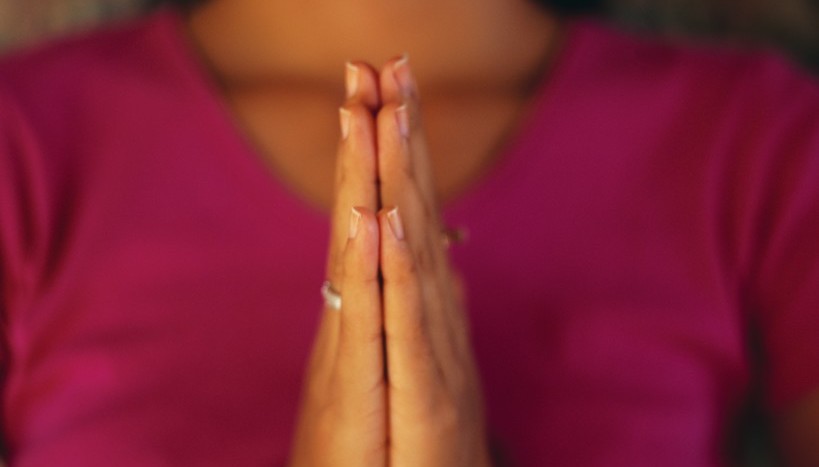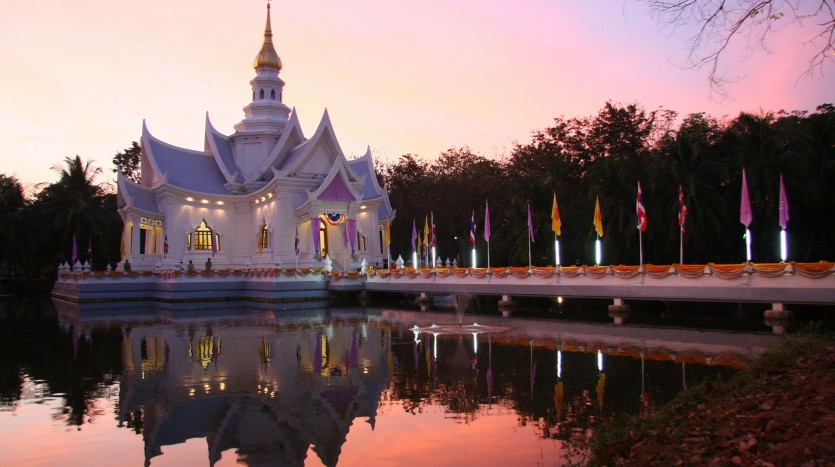Buddhist Meditation Course
Buddhist Meditation Course in Bangkok
Western students of Buddhism have long come to study and practice meditation in Thailand. Meditation teachings are widely available in Bangkok which make it easy and pleasant learning experience. A three-month stay in Bangkok is ample time for most students to attend meditation courses. There are two basic types of meditations: Vipassana, a Pali word means ‘insight’, meditation is unique to Buddhism particularly Theravada (Thai national religion), while Samatha meditation is the practicing of calming the mind and development of refined states of concentration which is similar to other traditions of meditation found in most of the world’s religions. Most Buddhist study centers and temples in Bangkok specialize in Vipassana meditation, while some offer both Vipassana and Samatha meditation. Instruction is free of charge at temples, but you must attend daily prayers. Teaching methods vary from place to place but the general emphasis is on learning to observe mind-body processes from moment to moment. Meditation courses are taught in both Thai and English. A few westerners are formally ordained as monks or nuns in order to take full advantage of the monastic environment. Buddhist foreigners are allowed to stay in Thailand as long as they remain ordained monks or nuns. Here are places to learn about Theravada Buddhist vipassana meditation in Bangkok.
Wat Pak Nam: This very large Wat has hosted many foreigners (mostly Japanese) over the years. During the Buddhist Rain Retreats, there may be hundreds of monks and nuns study and meditate here. The meditation instruction emphasis is on developing concentration through Nimittas (acquired mental images). A small English library is available. Wat Pak Nam is located on Thoet Thai Rd, Phasi Charoen, in Thonburi.
Wat Mahathat: This 18th century wat locating on the opposite of Sanam Luang provides meditation instruction several times daily at Section 5, a building near the monk’s quarters. Daily schedules: 07:00-10:00, 13:00-16:00, 18:00-20:00. English speaking classes are on Monday, Wednesday, and Friday. Some of the Thai monks speak English and there are often western monks or long term residents available to interpret every day. There is also a Saturday session for foreigners at the Dharma Vicaya Hall. Instruction is based on the Mahasi Sayadaw system of satipatthana or mindfulness. Time needed for practicing will vary with each session depending on each individual English speaking monks assisting.
Wat Cholaprathan Rangsarit: The teachings here employ a modified version of Mahasi Sayadaw system of Satipatthana. This wat is also serves as a headquarters for monks from Wat Suan Mokkhalaram (world renowned English-speaking meditation retreat) in southern Thailand. Wat Cholaprathan Rangsarit is in Pak Kret, Nonthaburi province, but Nonthaburi is so connected to Bangkok’s urban sprawl you can hardly notice the difference.
Wat Rakhang Khositaram: To study here, one ought to be able to speak Thai fairly well; otherwise, an interpreter will have to be arranged. The teaching tradition here is strongly focused on Abhidhamma, the pitika (one volume in the three volume Tripitaka that make up the Theravada Buddhist canon) most concerned with Buddhist psychology. Vipassana is considered attainable without strong concentration by means of a dialectic process.
World Fellowship of Buddhists: 616 Benjasiri Park, Soi Medhinivet, between Soi 22 and Soi 24 Sukhumwit Rd. The center hosts meditation classes from 2:00 pm to 5:30 pm on the first Sunday of every month.
International Buddhist Meditation Center: Vipassana Section room 106, Mahachula Bldg, Wat Mahathat. This is one of the most prestigious Buddha learning centers in the kingdom. Lectures and meditation classes on Buddhist topics in English are held twice a month.
Young Buddha Association of Thailand holds classes and retreats in large group. House of Dharma (Vipassana) Insight Meditation Center in Chatuchak, Bangkok are taught on weekends or evening only.
There are two different schools of Buddhism: Theravada Buddhism also known as Hinayana or Lesser Vehicle Buddhism and Mahayana or Greater Vehicle school of Buddhism. The primary difference between the two is that the Theravada Buddhists believe every individual is responsible for one’s own enlightenment, while Mahayana Buddhists believe society can work together to achieve enlightenment for all. Most Thai Buddhists do not aim to attain enlightenment but rather work towards a ‘better’ next life by carry out numerous and various merit making actions (tam boon); the most common is provide monks with meals early in the morning, while the others include presenting robe and other necessities to temples, performing regular worship at the local wat such as meditating, listening to monk chanting suttas, and attending talks on Dharma (right behavior), as well as releasing caged birds, and building new temples.


